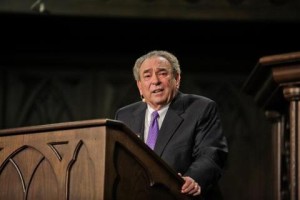From the Master’s Seminary – a 19 lecture series on the Protestant Reformation taught by Dr. Carl Trueman personalities, and events that shook Europe in the sixteenth and seventeenth centuries. It will consist of lectures and guided reading.
The focus will be on the development of Protestantism in its social, political, and cultural contexts, starting with Luther and the late medieval background and tracing the story through to the birth of modernity in the seventeenth century. En route, the student will study primary texts, art work, Reformation popular culture, and pastoral practices in early modern Protestantism.
In addition, the course is designed to help students to think critically about the past in a way which allows them to think critically about the present. Men and women make history, but they do not make the history that they choose; and only by examining the past forces that shaped the present can we understand ourselves, the world in which we live, and thus mount any response to the challenges that face us today.
Learning Goals
At the conclusion of the course, each student should be able to:
Recognize the key personalities, controversies, and theological developments which marked the Reformation.
Distinguish between the various historic Christian traditions in terms of their distinctive theological convictions as formulated during the sixteenth and seventeenth centuries.
Articulate ways in which social and cultural contexts shaped the way the church developed during the Reformation.
Textbooks and Reading Schedule
Students are expected to obtain a copies of:
Denis R Janz, A Reformation Reader: Primary Texts With Introductions. Some selections have been assigned, but the whole book is useful as giving short texts relevant to the various topics we will cover.
Carter Lindberg, The European Reformations.
The numbers appended below to Janz refer to the selection, not the page.
Schaff III is the third volume of P. Schaff, The Creeds of Christendom (free pdf).
The readings from Lindberg are not synchronized with the lectures; they are merely a suggested timetable for taking you through the whole book by the end of the course.
1. Medieval Background and Martin Luther
Janz 14-19
Heidelberg Disputation
Lindberg, Chapters 1-2
2. Martin Luther
Freedom of the Christian
Lindberg, Chapters 3-4
3. Martin Luther
Exsurge Domine
Janz 25
Lindberg, Chapters 5-6
4. The Birth of the Reformed Church
Janz 30-37
The Sixty-Seven Articles of Huldrych Zwingli (in Schaff III)
Lindberg, Chapter 7
5. Geneva and Calvin
A Reformation Debate: Sadoleto’s Letter to the Genevans and Calvin’s Reply
Lindberg, Chapter 8
6. The Spread of Lutheranism and the Reformed Faith
The Augsburg Confession
The Heidelberg Catechism
Lindberg, Chapter 9
7. The English Reformation
The Act of Supremacy (1534)
The Thirty-Nine Articles
Homily on the True and Lively Faith
Lindberg, Chapter 10
8. Reading the Reformation
Luther, On the Jews and Their Lies
Lindberg, Chapter 11
9. The Catholic Reformation
Council of Trent: Bull of Convocation; Fifth and Sixth Session
Ignatius Loyola, Spiritual Exercises
Lindberg, Chapter 12
10. Seventeenth Century Developments: Reformed Confessionalism
Irish Articles of Religion (in Schaff III)
Westminster Directory for Public Worship
Lindberg, Chapter 13
11. Seventeenth Century Developments: Internal Catholic Conflicts
Pascal, Pensées
Lindberg, Chapter 14
12. The Birth of Modernity
Lindberg, Chapter 15
For further reading – see here.

 Article by Dr. Robert Godfrey (original source
Article by Dr. Robert Godfrey (original source 


